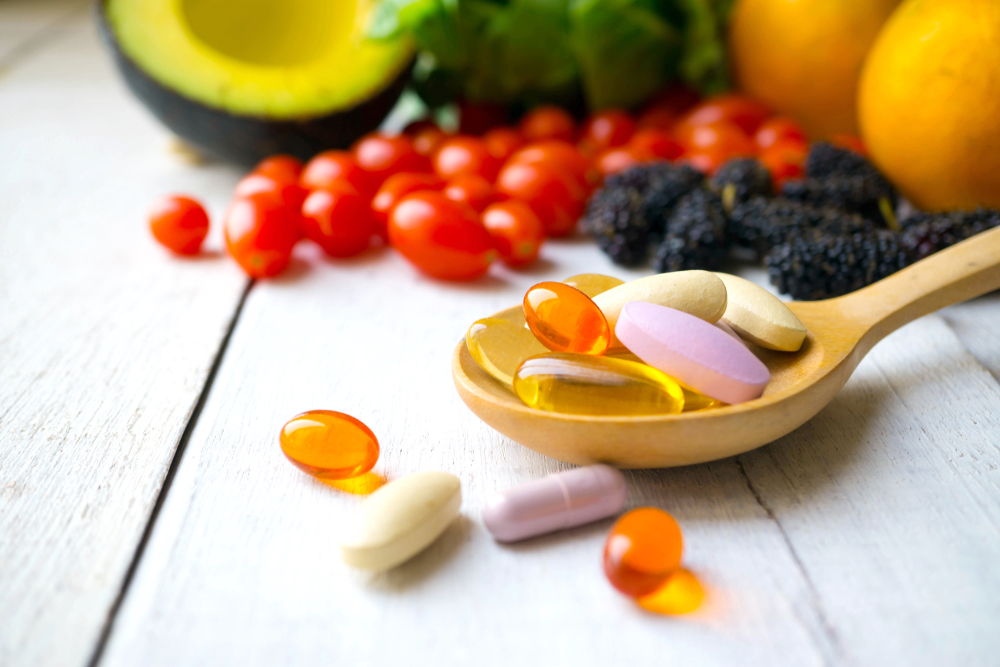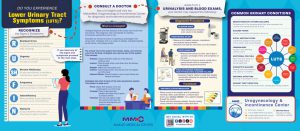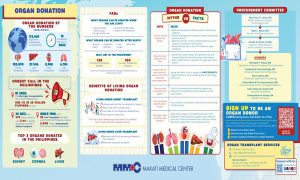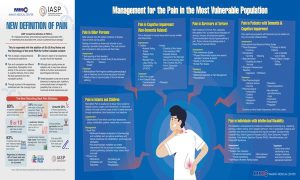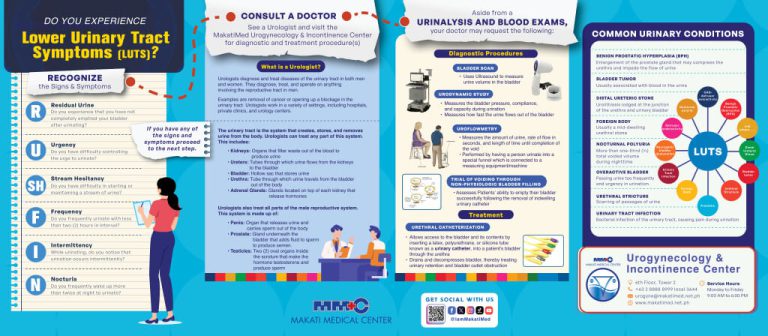Everybody knows the famous adage: “You are what you eat.” When it comes to living healthy, this saying bears truth. Aside from getting the right amount of exercise and rest, food also plays a big part in defining physical wellness.
The body functions through the cohesion of different systems. But, just like a car that runs on gas, it will not work properly without the right energy source. With this analogy in mind, it is clear that eating nutritious food with the right amount of daily essential vitamins and minerals is a must.
The Difference Between Vitamins and Minerals
People think that vitamins and minerals are the same. Even though they are often paired together and share the same purpose of sustaining the body, they have specific distinguishing characteristics.
Vitamins are organic substances that come from plants or animals. Since they can be broken down by heat, air, or acid, they can take up two different forms:
Water-Soluble Vitamins are nutrients that are found in the watery portions of food. Since the body is mostly made up of fluids, these nutrients can be easily absorbed into the bloodstream and circulate seamlessly. The kidneys regulate the body’s levels of water-soluble vitamins, and excess nutrients can be released through urinating.
Fat-Soluble Vitamins are found in nutritious fatty food such as fish. Unlike water-soluble vitamins that travel through the bloodstream, these vitamins travel with the help of proteins. Since they are stored in the liver and fatty tissues, it takes a long time for them to break down.
On the other hand, minerals are inorganic compounds. When compared to vitamins that can be broken down by different sources, minerals always maintain their chemical structure regardless of what they are exposed to. They can be categorized into two groups:
Major Minerals are abundant in the body and are classified as everyday essentials, which include sodium and potassium. These minerals regulate the body’s water, strengthen bones, and stabilize protein structure.
Trace Minerals are less abundant but are just as essential. The body only needs a small amount of trace minerals to function, unlike the 100mg daily requirement of major minerals. Some of its primary tasks include bolstering the immune system and transporting oxygen throughout the body.
Not only will these vitamins and minerals help a person get into the best shape of his life, but also keep immune system diseases and other diseases at bay. Here are 20 essential vitamins and minerals you should be taking:
20 Daily Essential Vitamins and Minerals for a Healthy Body
1. Vitamin A – Vitamin A aids in the body’s growth and helps cells develop. It keeps skin, hair, and nails healthy, and is usually found in food such as fish, eggs, and dairy.
2. Vitamin B1 (Thiamine) – Thiamine plays an essential role in digestion and appetite. Aside from being another metabolism booster, it also helps promote proper nerve function. Pork, seeds, and fortified cereals are excellent sources of the vitamin.
3. Vitamin B6 (Pyridoxine) – Pyridoxine, also known as Vitamin B6, promotes metabolism and helps maintain one’s energy levels. It can be easily acquired through meat, poultry, and vegetables.
4. Vitamin B7 (Biotin) – Biotin is an essential vitamin that promotes metabolism. Studies also link it to improved hair health and optimized nervous system function. Eat whole grains, nuts, and soybeans for a daily dose of it.
5. Vitamin B9 (Folate/Folic Acid) – Doctors recommend a diet filled with Vitamin B9 during pregnancy as it can prevent congenital disabilities. At the same time, it also boosts protein synthesis and red blood cell production. Asparagus, yeast, and avocados are excellent sources of the nutrient.
6. Vitamin B12 (Cobalamin) – Cobalamin aids the body in protein synthesis and in the creation of red blood cells. The body does not produce the vitamin, but it can be acquired from animal protein.
7. Vitamin C – A popular antioxidant, Vitamin C (also known as Ascorbic Acid) strengthens blood vessels, aids in the healing of wounds, and generally supports the immune system. It can be found in various fruits like oranges, lemons, and guava, and in vegetables like peppers and broccoli.
8. Vitamin D – Ingesting Vitamin D helps the body build and maintain strong bones. As a nutrient that boosts calcium absorption, this can be easily acquired from fortified milk, soy beverages, and fatty fish. People can also have their fair share of Vitamin D through early morning sun exposure.
9. Vitamin E – Similar to Vitamin C, Vitamin E also acts as an antioxidant. It protects the cells, thus keeping the body healthy and free of disease. Eggs, vegetable oils, and nuts are good sources of it.
10. Vitamin K – The body needs Vitamin K for proper blood clotting, better bone metabolism, and the regulation of blood calcium levels. Spinach, broccoli, and other leafy greens are good sources of the nutrient.
11. Calcium – Primarily known as a mineral that strengthens teeth and bones, calcium also helps improve other bodily functions. It helps regulate blood pressure, allows proper muscle contraction, and helps the nervous system operate. Dairy, fish, and tofu are some popular sources of the nutrient.
12. Chromium – Chromium normalizes blood sugar levels by assisting insulin function. It helps convert blood sugar into energy and can be easily acquired through whole wheat, poultry, and greens such as broccoli.
13. Copper – Copper keeps the blood vessels, nerves, bones, and immune system in shape. It also helps the body produce red blood cells and metabolize energy. Oysters, beans, nuts, and other kinds of meat are known to be good sources of the mineral.
14. Iron – Iron aids in the production of hemoglobin, the chemical responsible for transporting oxygen in the body. The mineral is also essential in activating certain enzymes, the creation of amino acids, and the maintenance of neurotransmitters. For the next grocery run, grab some cashews, potatoes, and beans for the best sources of iron.
15. Magnesium – Magnesium generally performs the same functions as calcium. It strengthens bones, enables muscle contraction, and helps blood clot. Luckily, delicious snacks such as dark chocolate, nuts, and avocados are known to be rich sources of magnesium.
16. Manganese – Manganese helps metabolize amino acids, carbohydrates, and other nutrients. Similar to calcium and magnesium, it also helps in the formation and strengthening of bones. Shellfish, nuts, and spices are good sources of the nutrient.
17. Molybdenum – Molybdenum helps prevent the buildup of waste inside the body. It aids in the breakdown of toxins by activating several enzymes. Legumes, vegetables, and beef liver are known to be the best sources.
18. Potassium – Potassium helps regulate bodily fluids. It is essential for athletes since it helps the body maintain a steady heartbeat, regulate blood pressure, and muscle contraction. Aside from bananas, mushrooms, dried fruits, and sweet potatoes are also rich in potassium.
19. Sodium – Just like potassium, sodium also helps the body balance fluids. It also helps nerves send out signals and allows proper muscle contraction. Bread, fish, meat, and nuts are popular examples of high-sodium foods.
20. Zinc – Lastly, zinc is another essential mineral that performs a set of vital functions. It helps with wound healing, strengthens the immune system, and helps in the creation of proteins. Whole grains, red meat, and nuts are all good sources of zinc.
Fuel the Body the Right Way
The best way to absorb all the nutrients listed above is to eat healthily. However, making lifestyle changes and following a healthy balanced diet can be a very challenging task for many. For those likely to experience such difficulties, consider going to outpatient centers for proper guidance.
Take a proactive approach to wellness. If you want to safeguard your well-being for years to come, make it a point to undergo executive check-ups regularly, as well. If you are feeling ill and experiencing symptoms of a disease, contact Makati Medical Center for diagnosis, management, and treatment.

